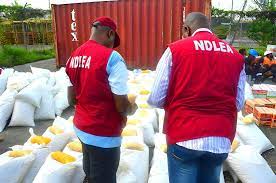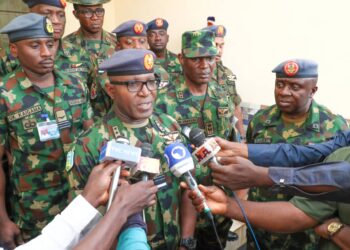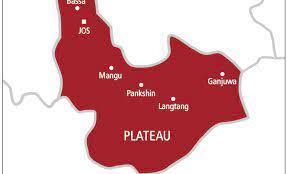The British government Thursday expressed worry over the rise in conflicts capable of destabilising Nigeria’s democracy in the run-up to the 2023 elections.
Also, the governors said the level of insecurity in various parts of the country was not only eroding citizens safety and peoples means of livelihood, but threatening the expression of the rights of all Nigerians.
They spoke at the launch of the Nigeria Governors’ Forum (NGF) Peace and Inclusive Security Initiative (PISI) in Abuja
Addressing the gathering, Development Director Foreign, Commonwealth and Development Office (FCDO) Chris Beecroft, said the frequent crisis across the country on injustice and impunity, as well as weak justice institutions in the country were major threats to the nation’s democracy.
He , however, said peace and stability could be achieved when the causes of conflict in society were managed through strong, fair, and responsive governance mechanisms at community, state, or federal level.
“The rise in conflict risks destabilising Nigeria’s democracy in the run-up to the 2023 elections. There is an active insurgency in the North East; farmer-herder conflicts are extending across the country; resource conflicts in the Delta; tension in the South-East; and banditry in the North West.
“Conflict destroys lives, destroys livelihoods, destroys hope and ambition for the future. Conflict represents an existential threat to Nigeria’s unity and its development.”
While saying the use of the police and army could only be part of the solution, Beecroft called for greater emphasis “on reconciliation, mediation, arbitration, and access to justice – all vital components of a vibrant, resilient, and effective social contract.”
He also said proliferation of small arms and weapons and the weaponisation of social media, are drivers of conflict and instability.
The FCDO chief made a case for job creation for young Nigerians “so they have a stake in a prosperous and peaceful Nigeria.”
“The UK is pleased to have been able to support this initiative and is committed to continue working with the Nigeria Governors Forum (NGF) in advancing its peace and security agenda.
“The UK is engaged in supporting Nigeria to reduce violent conflict in a number of areas. We promote a regional response in the North East and Lake Chad Basin through our contribution to the Regional Stabilisation Facility (RSF) and delivery of programmes on peace building, humanitarian assistance, protection of civilians, human development, good governance and accountability,” he said.
In his speech, a former head of state and Chairman National Peace Committee, Gen. Abdulsalami Abubakar (retd), lamented what “the instrumentalisation of violence,” stressing that “violence has become a commodity in Nigeria.”
Represented by Catholic Bishop of Sokoto Diocese, Bishop Matthew Hassan Kukah, Abubakar said Nigerians were in denial of the diagnosis.
He said poverty was not the cause of violence in Nigeria, noting that China has about 300 million unemployed.
Earlier, Chairman Nigeria Governors’ Forum (NGF) Ekiti state Governor Kayode Fayemi, who spoke on behalf of his colleagues, expressed worry over the increasing rate of violence and coordinated criminal activities.
He said these had undermined government authority and waned public trust in recent times.
He listed some of the causes of the nation’s sorry state to include “an oversized population that the government is unable to cope with, a large number of poor people estimated at over 40 percent of the population who are living below $1 per day, and indeed, desertification which has affected over 60 percent of Nigeria’s land, as drought and climate change has continued to aggravate land deterioration in the country.”
The NGF chairman further said: “Between May 2011 and February 2021, over 76,000 deaths were reported. This number also includes persons who have been killed by a state actor.
“In addition to the proliferation of arms is an undertone of rising ethnic conflict, with different ethnic groups subsumed in conflicts and pitched against one another.”
Also speaking, NGF’s Director General Asishana Okauru said: “The Peace and Inclusive Security Initiative is a consequence of our determination to contribute to the conversation on inclusive security and add the leverage of the sub-nationals to the efforts to secure the lives and property of our country men and women.
“With the support of the Foreign Commonwealth and Development Office (FCDO), we have been able to set up the Peace and Security Desk at the NGF to help in driving the dialogue around keeping the country safe and bringing all State and non-State actors together around one table to frame a sustainable resolution to the series of security challenges confronting our national experiment.
“I can assure you of the commitment of States not only to the objectives of the PIS initiative but to sustainable peace in the country. The presence of some of our principals today is a testament to this commitment and resolve.”




